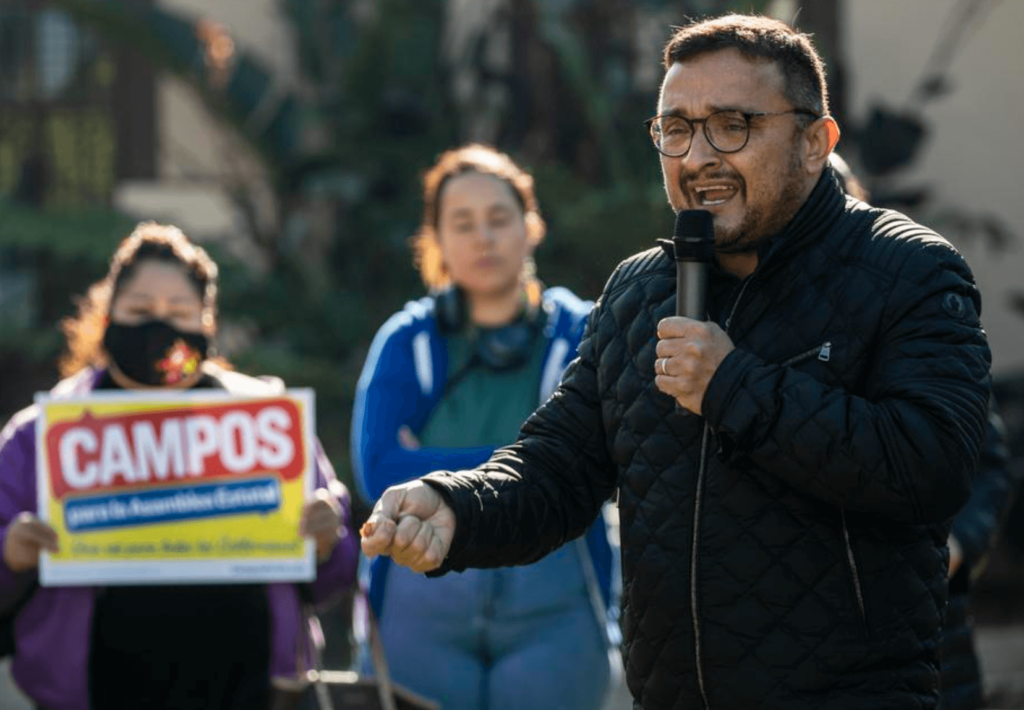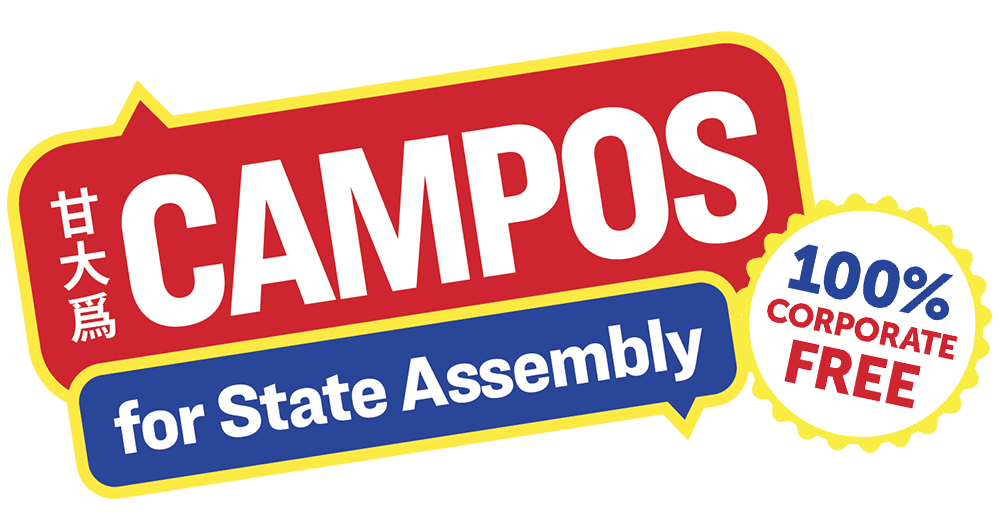This article originally appeared in the San Francisco Chronicle.
By: Dustin Gardiner
SACRAMENTO — David Campos has been here before — locked in a fiercely competitive race to represent San Francisco in the state Assembly while battling a chief rival whose supporters have deeper pockets.
The last time, nearly eight years ago, Campos lost. After a negative and expensive fight, David Chiu defeated him by two percentage points.
But Campos, a former supervisor, has vowed the do-over will be different.
“You always learn more from your failures than you do from your victories,” Campos said of his sequel campaign. “We’re fighting for every vote.”
The Assembly District 17 seat, representing the city’s eastern side, is vacant after Chiu resigned last fall to become city attorney.
Campos, an attorney, is one of four candidates on the ballot for the Feb. 15 primary, along with Supervisor Matt Haney; Thea Selby, a City College of San Francisco trustee; and Bilal Mahmood, a scientist, entrepreneur and philanthropist.
If no candidate wins a majority in the primary, a runoff election will be held April 19. Whoever wins the special election for Chiu’s former seat will have little time for a victory lap. If the victor hopes to stay in the Assembly, they will have to run again in the June 7 regular statewide primary election, followed by the Nov. 8 general election.
Political observers widely predict a two-person runoff between Campos and Haney. Both men are vying for the support of San Francisco’s ultra progressive voters.
Why he’s running: Campos believes his unabashedly progressive message is well suited for the moment.
He said the COVID-19 pandemic has further laid bare San Francisco’s vast wealth disparities, and he argues he has the strongest track record of pushing bold pieces to fight inequity.
Campos, who is vice chair of the California Democratic Party, said he’s heard from many party members across the city and state who feel like “Sacramento was out of touch with them.”
“It really is about giving a voice to people who feel disconnected from power, who have been left out for so long,” Campos said.
He has dubbed himself “the corporate-free candidate,” vowing to not take contributions from business interest groups, which often become the roadblock to progressive aims at the state Capitol. Campos’ campaign said he has raised over $400,000, including large donations from labor unions, tribal communities and many sitting Democratic legislators.
But Haney has the financial upper hand. His campaign said he has raked in more than $675,000 so far, and he is poised to benefit from outside spending by groups representing the medical industry and building trades unions.
Background: As he speaks to voters, Campos, 51, has emphasized both his personal story, as a gay man and former undocumented immigrant, and his long career in public service.
He immigrated to the United States at age 14, carrying his younger sister on his back while he, his mother and another sister crossed the border as they fled political upheaval in Guatemala. Campos said they joined his dad in South Central Los Angeles, where they lived in a “rat-infested” one-room apartment.
“For me, protecting people from eviction is not just theoretical, it’s very personal,” he said. “People see in me someone who represents the experiences of so many who’ve come to San Francisco.”
Campos said his mother worked as a janitor at night. He learned to speak English in public schools and worked many jobs. As a “dreamer,” he attended Stanford University, and later Harvard Law School.
At law school, Campos met his future husband, Phil Hwang, and the couple later relocated to San Francisco. Campos gained citizenship and became a deputy city attorney, a position he held for about five years.
In 2008, Campos was elected to the Board of Supervisors in deeply progressive District 9, representing the neighborhoods of Bernal Heights (where he lives), Portola and the Mission.
Campos championed measures to cement the city’s “sanctuary” status for undocumented immigrants; create CleanPowerSF, the city’s clean energy alternative; and establish cultural districts, starting with the Latino Cultural District in the Mission.
He was termed out in 2016 after eight years as a supervisor. Following his unsuccessful campaign for the Assembly in 2014, he worked as a deputy Santa Clara County executive.
Campos, however, quickly found his way back to the center of progressive politics. He was elected chair of the San Francisco Democratic Party in 2017, and vice chair of the state party last year.
He is also the chief of staff to District Attorney Chesa Boudin, but has been on leave from that role since November while he focuses on his campaign.
Policy proposals: Campos’ campaign has focused on many of the progressive goals he touted as a supervisor. He hasn’t released a detailed policy platform, but he outlines several of his priorities in mailers and on his website:
• Medicare for all: Campos said the state needs a government-funded health care system that provides coverage for all Californians regardless of income.
• A Green New Deal: He said the state must invest more aggressively in infrastructure and job programs that reduce planet-warming emissions.
• Ending hunger: Campos said the state should use a chunk of its existing budget surplus to provide enough funding for food banks and other community organizations to erase food insecurity.
• Free college: Taking a page from progressive standard-bearer Sen. Bernie Sanders of Vermont, Campos wants California to provide free public college to all residents.
What critics say: Much of the intra-progresssive jousting has been between Campos and Haney, who are in many ways competing for the same pool of voters and endorsements.
One key dividing line in the race has been the Board of Supervisors’ controversial decision last fall to reject a 495-unit apartment complex for a site on Stevenson Street that is currently a Nordstrom parking lot. Haney supports the project, which would be in his district. Campos said he opposes the project, though not housing on the site, because it would displace nearby residents through gentrification.
“I don’t think we should build projects that leave out the working class and the middle class,” he said.
Read the full article in the San Francisco Chronicle.


